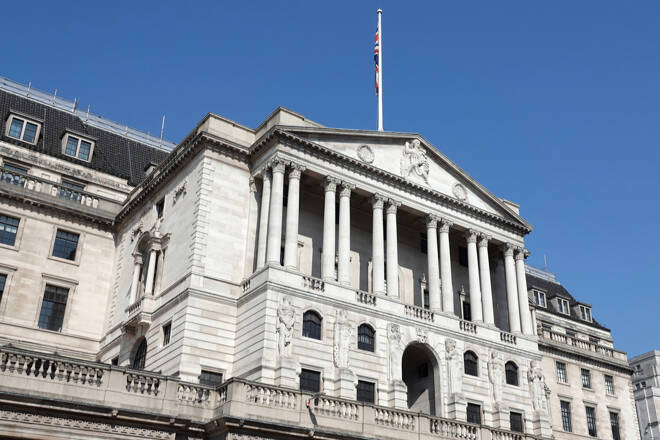Advertisement
Advertisement
50 or 75 bps Rate Hike: Markets Split Over Size of Next Week’s BoE Move
By:
Regardless of the size of the hike, the BoE has a lot more work to do to bring inflation back to target.
Key Points
- UK inflation surprised (slightly) to the downside on Wednesday, with headline CPI falling back under 10% YoY.
- But economists still expect it to hit 11% in October as energy prices rise.
- Market participants are split over whether the BoE will hike rates by 50 or 75 bps next week.
UK August inflation figures surprised to the downside on Wednesday. The YoY rise in the Consumer Price Index fell unexpectedly for the first time in a year to 9.9% from 10.1% in July, versus expectations for a modest rise to 10.2%. Core CPI came in as expected at 6.3%, up from 6.2% a month earlier. Meanwhile, Producer Price Index figures also surprised to the downside.
Whilst the (modest) fall in the headline YoY inflation rate will be seen as good news for the BoE, which has been raising interest rates aggressively in recent months to cool the economy as inflation surges, economists do not think UK inflation has yet peaked. In October, a new household energy tariff cap kicks in and is likely to push the headline YoY inflation rate above 11%.
Indecision Over Size of Next Week’s BoE Rate Hike
While UK money markets are currently pricing in an 80% chance that the BoE hikes interest rates by 75 bps next week and only a 20% chance of a 50 bps move, most of the economists who partook in a recent Reuters poll said they think a 50 bps rate hike is more likely. That could complicate GBP’s reaction function to next week’s rate announcement – traders may be unsure as to whether to sell GBP on a 50 bps rate hike or whether or not to buy it on a 75 bps move.
What’s clear is that, with Wednesday’s inflation figures showing the price pressures, while a tad lower than expected in August, remaining elevated at multi-decade highs, the BoE has plenty of work to do regarding further rate hikes if it wants to keep inflation expectation anchored and get back to its 2.0% target in the coming years.
Traders have been upping their bets as of late as to where UK interest rates will peak next year, with rates now seen reaching around 4.5%. Contributing to the recent upshift in BoE tightening bets has been the recent announcement of new fiscal support by the UK government.
The UK government looks set to borrow at least £100 billion to help households/businesses pay for their energy bills. While a government cap on energy costs incurred by the public means a lower expected peak in UK inflation in the months ahead, it also reduces downside risks to the UK economy, which may contribute to core UK inflationary pressures remaining elevated for longer, thus requiring a stronger tightening response from the BoE.
About the Author
Joel Frankauthor
Joel Frank is an economics graduate from the University of Birmingham and has worked as a full-time financial market analyst since 2018. Joel specialises in the coverage of FX, equity, bond, commodity and crypto markets from both a fundamental and technical perspective.
Advertisement
